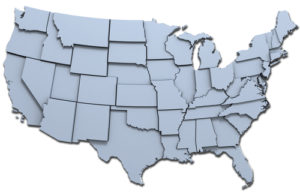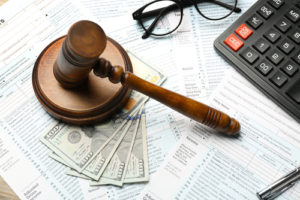Things to Consider for Your 2015 Capital Gains Tax
There are all kinds of investors in the world. Some are looking to make a quick buck by buying and then quickly selling stocks as soon as they increase in value. Other investors buy stocks with an eye toward the future, which means they are in it for the long haul.
In any case, anyone who invests wants to be successful at it. It’s a great feeling to buy stock in a company and see that stock increase in value. However, at some point if you plan on selling that stock and cashing in or your gains, you will have to give a portion of those gains to the taxman. What percentage you will owe will depend on the size of your gain and how long you have owned the stock.
The government wants investors to hold onto their stocks longer. To encourage this they have a lower tax percentage on stocks held longer than a year. Whether you’re a quick turnaround trader or a long-term investor here’s what you should be aware of in 2015 for your capital gains taxes.
First, generally all you need to know to determine your capital gains is the difference between what you paid for the stock and how much you sold it for. When you know that amount then you can calculate the tax. Your tax rate will depend on which bracket you’re in. There are three that apply:
- If your ordinary income puts you in the 10-15 percent tax bracket, then your long-term capital gains rate is 0 percent.
- If your ordinary income falls in one of the 25, 28, 33, or 35 percent tax brackets then your long-term capital gains rate is 15 percent.
- If your ordinary income is in the 39.6% tax bracket, then your long-term capital gains rate is 20%.
There are a few other caveats to remember. For high-income earners, there is an additional 3.8 percent surtax on net investment income. Also, you only pay taxes on the net of your capital gains, which can make a big difference if you sell more than one stock in a year. If you want to learn more about capital gains taxes then please contact GROCO for more answers. Click here or call us at 1-877-CPA-2006.
Best and Worst Tax States for Businesses
Best and Worst Tax States for Businesses Where is the best place to call home? That all depends on the criteria you’re using to judge. So what if you’re looking to start a business or move your business and you want to find a tax-friendly location for your business? It turns out that where you…
Will New Tax Plan Hurt California Home Owners?
Will New Tax Plan Hurt California Home Owners? While it still remains to be seen if the new tax proposal from House republicans ever gets through the Senate and reaches the president, many taxpayers are still concerned about the consequences. One of the largest groups in this category is homeowners in California, not to mention…
Seattle’s High-Earner Tax Facing Opposition in Court
Seattle’s High-Earner Tax Facing Opposition in Court There are only seven states in the U.S. that don’t charge income tax, and Washington State is one of them. However, that all changed earlier this year, for some taxpayers in the state, when lawmakers in Seattle created what amounts to being an income tax on the wealthy.…
Treasury Secretary Claims Only Millionaires Will See Higher Taxes
Treasury Secretary Claims Only Millionaires Will See Higher Taxes Now that the House has released its tax reform bill and passed it, the ongoing war of words is really ramping up. Of course, opposing sides both have a lot to say regarding how the bill will affect taxpayers, including which taxpayers it will benefit and…




